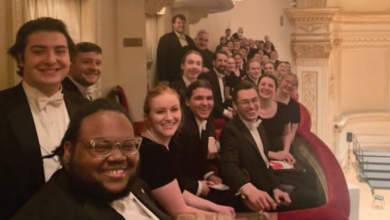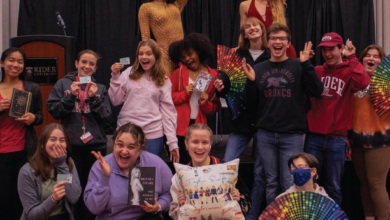Panelists discuss colorism in telenovelas at Center for Diversity and Inclusion event
By Sarah Siock
A thought-provoking discussion tackling colorism in beloved telenovela series concluded the Center for Diversity and Inclusion’s (CDI) Hispanic Heritage Month events.
Throughout October, the CDI hosted several events to highlight the Latinx community at Rider. The telenovela discussion was the finale event and took place virtually on Oct. 16 in collaboration with the Latin American Student Organization.
A panel, consisting of students and faculty, looked at discrimination against individuals with dark skin tones that is seen in telenovelas.
Telenovelas are soap-opera-like television programs that are popular within Latin American, Portuguese and Spanish cultures. The discussion specifically looked at colorism in five telenovelas: “Rebelde,” “La Selección,” “Tarde lo Conocí,” “El Joe La Leyenda” and “Celia.”
While these shows were loved by many, they lacked diverse representation. During the event, clips from each of these telenovelas were shown and the panelists discussed their opinions of the shows.
“Telenovelas have been predominantly centered around white-passing or light-skinned Latinx individuals. If all we see represented in telenovelas is a fraction of who makes up the Latinx community, then the stories telenovelas are telling are excluding other Latinx and Hispanic individuals,” said junior psychology major Maureen Guilbot, who was the moderator of the discussion.
The first telenovela discussed was “Rebelde” which is a series that aired from 2005-2006 with over 400 episodes. In the clip shown, the majority of actors had light skin, blonde hair and thin bodies. The panelists addressed the problems associated with the unrealistic standard of beauty presented in the series.
Associate professor of Spanish and discussion panelist Maria Villalobos-Buehner described her relationship with telenovelas growing up. She said her entire family would crowd around the TV every night to watch telenovelas and they would become immersed in the world the characters lived in.
“We did not know or even reflect on how poorly these series were representing us as Latinx. At the time we did not realize how unhealthy and monochromatic these representations of uniqueness were occupying our lives,” said Villalobos-Buehner.
The discussion moved onto modern telenovelas as the panelists dissected “Celia.” The series aired from 2015-2016 and is based on real-life Cuban singer Celia Cruz. The panelist said that while this series made the effort to cast an actor who closely resembled Cruz, it still falls back on eurocentric views.
“They darkened the actress’ skin, which under normal circumstances would not be done in telenovelas. However, it falls into the exception that if you are portraying some sort of musician they are more concerned with accuracy than they are concerned about her skin being lighter. I think it goes against the grain, but then plays into that exception,” said associate professor of sociology and discussion panelist Victoria Gonzalez.
The panel said many of the problems associated with telenovelas are deeply rooted since the series are usually created by upper-class people for the working class. As a result, the telenovelas showcase who the upper class believes should be represented in the media.
The panelists expressed that for colorism to end in telenovelas, there needs to be continued conversations surrounding the issue.
“You can grow up watching telenovelas believing they are harmless when in reality they can be charged with anti-blackness, colorism and stereotypes. This can affect how you perceive yourself and treat others. Breaking down these topics empowers individuals who may not have been represented on screen, which encourages more accurate representation in telenovelas,” said Guilbot.



